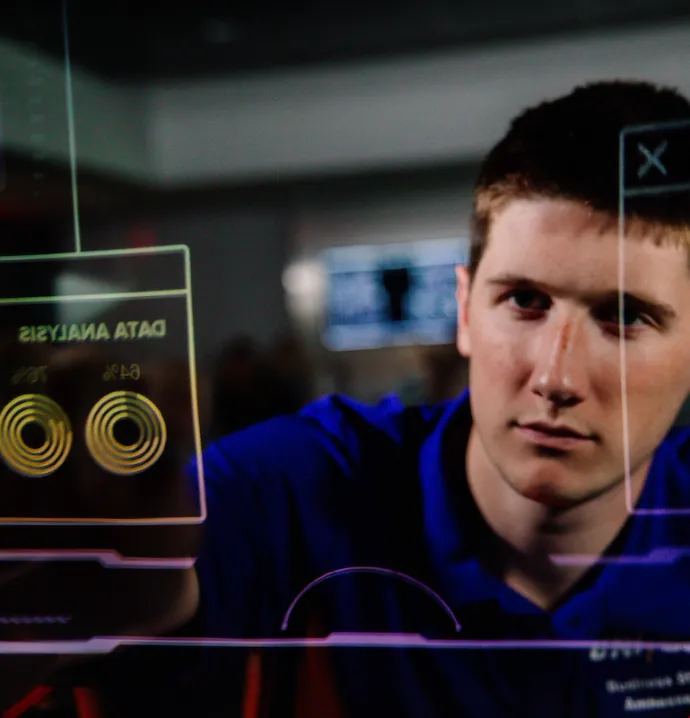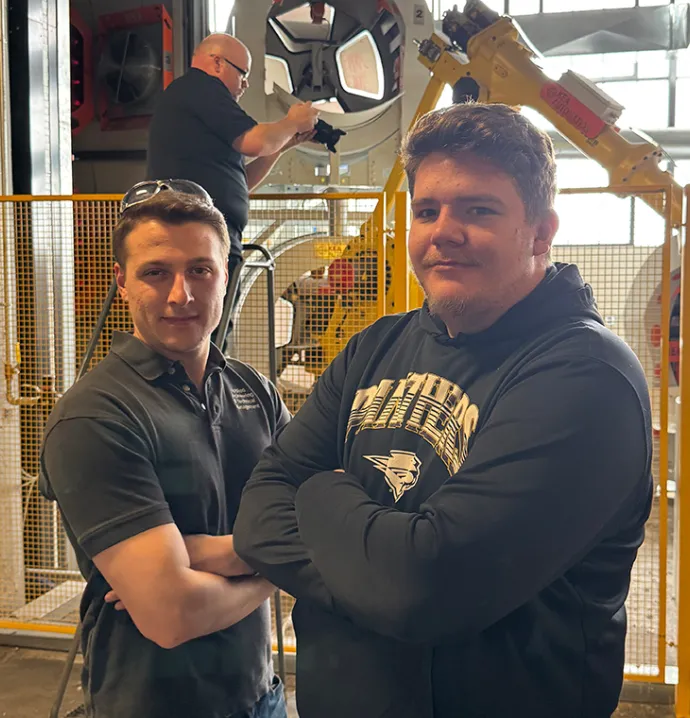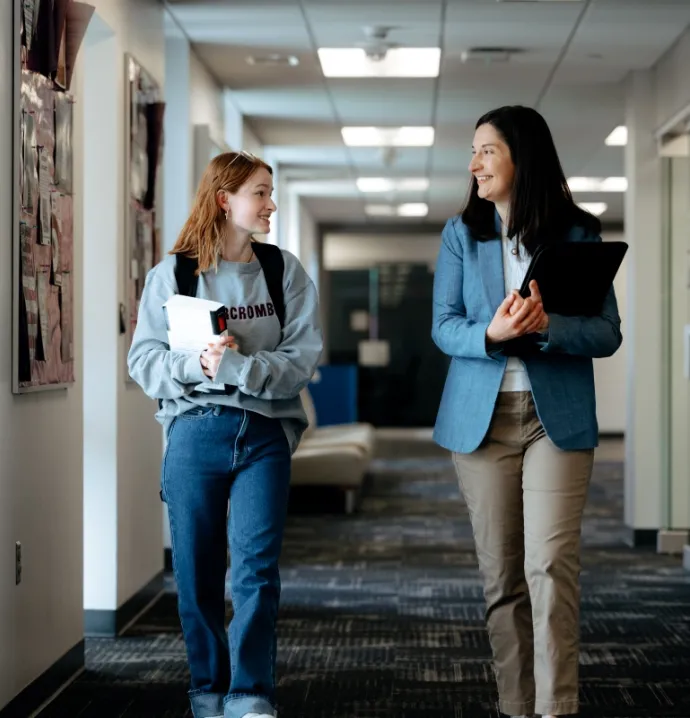Giving a voice to those in need
Giving a voice to those in need
Speech and communication are some of the most basic functions in our everyday lives – and they come so naturally to most, it’s easy to take them for granted.
But what if you weren’t able to communicate, or express your thoughts and ideas effectively? It would be frustrating, and even frightening – and that’s an everyday reality for the millions of people living with neurodegenerative diseases like Parkinson’s, Alzheimer's and dementia.
Over the years, researchers have made break-through discoveries in the treatment of neurodegenerative diseases, but one of the most effective treatments remains the same: early intervention.
Recently, two undergraduate students in the UNI Department of Communication Sciences and Disorders – Raelynn Meade and Clara Petersen – teamed up with industry leaders on a collaborative research project at the forefront of early intervention treatment.
“The more I’ve learned about [speech-language pathology], the more I realize how important it is for people to have a voice, and to help them regain control of their own communication,” Meade said.
Under the mentorship of Laura Pitts, associate professor of communication sciences and disorders at UNI, and in collaboration with Miriam Rafferty at the Shirley Ryan AbilityLab (SRALab) and Northwestern University in Chicago, Petersen and Meade are assisting with a quality improvement study of an early intervention program for persons with Parkinson’s disease at the SRALab.
This research project connects UNI students with the industry leading SRALab, which has been ranked as the best rehabilitation hospital in the nation by U.S. News and World Report every year since 1991.
“Both Raelynn and Clara were enthusiastic about joining our ongoing collaboration with the SRALab,” Pitts said. “It’s an extraordinary opportunity to contribute to innovative clinical research with larger patient populations and to interact with globally respected experts in the field of rehabilitation. In addition, our students often advance to complete clinical practicums with the institution.”
Meade, who graduated in the spring of 2020 and will attend graduate school at UNI in the fall, says having the opportunity to work side-by-side with top experts in the field is a huge boost for her future dream of becoming a speech-language pathologist.
“It’s humbling, and an incredible opportunity to connect with people at such a high level – especially as an undergraduate,” Meade said. “I’m really thankful for the opportunity just to make connections and help people. We’re playing a relatively small role, but this research is so impactful, and just knowing something we do here in Iowa may help someone around the country is great to be a part of.”
For their role in the research, Meade and Petersen are working with data from the SRALab’s early intervention program, with the goal of optimizing current therapy models. After analyzing the data, the pair will provide suggestions for how to improve the program.
By better understanding how the early intervention program is reaching and assisting people with Parkinson’s disease, the students’ work will help improve the current program and address any barriers to participation.
As an undergrad, Meade was previously involved in three different research projects, along with clinical experience working with patients in the Roy J. Eblen Speech and Hearing Clinic on the UNI campus.
“It’s been incredible being able to do this kind of work as an undergrad, and it’s very unique to UNI; you don’t get that opportunity at a lot of schools,” Meade said. “With going on to grad school, doing research and having clinical experience is one of the most helpful things you can do. You learn more in depth through these projects, and it takes you places you couldn’t go with just classroom work.”
Pitts says by participating in undergraduate research, students develop a love of discovery; something that UNI, and the department of communication sciences and disorders, emphasizes strongly.
“When our students unlock that love of discovery, we see them ultimately improving therapy techniques and the overall patient experience,” she said. “Our department is widely recognized as an outstanding program, especially for providing hands-on clinical and research experiences for both our undergraduate and master's students. It’s something that our department very much emphasizes.”




